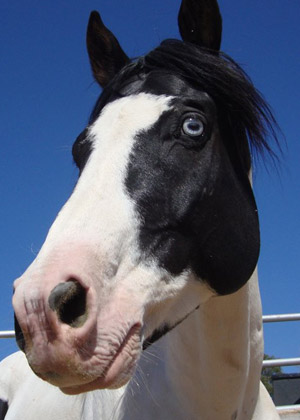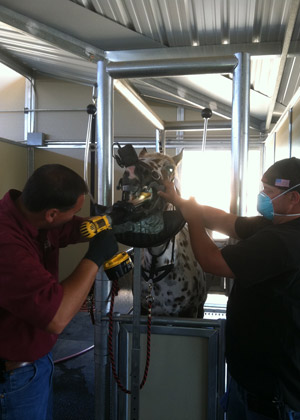Nutrition
Now that you have chosen the perfect horse for yourself you need to know what it eats and how much to feed your horse. You may also wonder what supplements if any does my horse need to stay healthy and sound. If you are around horse people there is always plenty of advice about how to feed your horse. Some of it is good, some of it is ok, and some of it is just plain bad.
First of all we have to know that horses are herbivores free proxy 다운로드. This means that they only eat plant material. For the most part they prefer grasses and hay as their primary source of nutrition. A horse’s diet can be broken into two broad categories. These are roughage which consists of grasses, hay, and high fiber feeds such as beet pulp, and Concentrates which would consist of grains, starches and fats. The balance between these two categories is what will make your horse digestive system perform at its best. A horse’s digestive system is designed to process large quantities of roughage and convert that roughage into energy Santa game download. This is done with the assistance of microorganisms that reside in the large colon of the horse. These microorganisms use several biochemical processes to break down the roughage and convert the grasses and hay into usable energy for the horse. For a horse that is rather sedentary or is ridden one to two times a week for an hour or so a diet consisting of primarily good quality hay or pasture should be adequate meet the nutritional requirements of your horse.
Horses that are worked several times a week, or are working horses and mares that are nursing a foal may require more nutrients than can be adequately provided by roughage e alone Download Choksan Electric 2. These horses may require additional concentrate feeds such as grain, or senior feed. There are several types of processed feeds out on the market, and should your horse require additional feed you can consult with your veterinarian to determine how much additional feed is needed and what type would be the best for your horse.
Types of Hay
The definition of hay is a type of grass that has been cut and dried to be used as a source of feed. There are several different types of hay, and each has a little bit different nutrient profile. This nutrient profile also changes by the region in which it is grown 청춘연가 다운로드. Things such as soil types, water, weather, mineral content of the soil and maturity at time of harvest all affect the nutrient profile of hay.
Types of hay include Bermuda, Orchard grass, timothy, Johnson grass, teff grass, rye grass, oat hay and alfalfa. Although this is not an exhaustive list it is fairly representative of hay that is available in most parts of the country. The nutrient content of hay also varies with the time of year. Newly cut hay will have a different nutrient profile than barn stored hay which is usually available in the winter and early spring.
Supplements
One of the most frequently asked questions asked is “what supplements should my horse be getting?” There is no simple answer to this question 드리븐 투킬 다운로드. If you were to go online or look in any equine catalog you would find a supplement for anything and everything that might ale your horse. There are supplements for hooves, joints, hair coat, liver, kidneys, bones, and vitamin and mineral supplements. Not every horse needs supplements. In fact when many different supplements are combined together they may cancel out the benefits of each other. For most horses a good quality vitamin mineral supplement fed with good quality forage should be adequate to meet the nutritional needs of your horse. Remember that senior feed or a supplemental grain should not be fed for vitamin and mineral supplementation. You need to feed a minimum of three pounds or more a day to get any vitamin mineral benefit from senior feed quiet fill. In the horse that does not need extra calories this can translate into excess weight that your horse does not need.
As far as joint supplements and hoof supplements are concerned you need to choose a good quality product with an adequate amount of active ingredient, and choose one that has a significant amount of independent research behind the product. The better products may cost a little more, but the benefits will be better. Remember not all horses are in need of supplements.
Hoof Care
One of the things that you will need to get for your horse is a good farrier. Hoof care is of utmost importance. Horses need to have their feet trimmed or shod every 6-8 weeks. Without good hoof care horses can have problems such as lameness, hoof abscess, thrush, and foot canker Makeup Princess. These foot problems can make a horse very lame and are very painful to horses. Whether you have your horse with shoes or without shoes picking their feet on a daily basis will help to keep their feet healthy, and you will be able to identify potential problems.
There are several schools of thought when it comes to horses wearing shoes or horses going barefoot. One option is that of leaving your horse barefoot. Many people do this because their horse has never had shoes, and the horse wears its foot well. Some also leave their horses barefoot because it reduces the cost of hoof care because the farrier only needs to trim the feet every 6-8 weeks 프레임워크 다운로드. Along with barefoot trimming is the “natural trimming”. This is a technique that attempts to shape the foot and have it grow so that it in a sense trims itself. The third option is to have shoes on your horse’s feet. Some horses will have shoes on all four feet, and some will only have shoes on the front feet.
Not all horses can tolerate shoes and not all horses can tolerate being barefoot. If your horse has had shoes its whole life and you take the shoes off to make it barefoot it can often times become very foot sore docker 다운로드. Conversely if you were to take a horse that has been barefoot its whole life and put shoes on it, it can also become very sore. Any type of drastic change in shoeing of your horse can be detrimental to its feet. Working with your farrier and veterinarian will help your horse’s feet stay healthy and your horse stay sound.
Vaccinations
Vaccinations are essential to your horse’s health. Vaccinations will prevent your horse from contracting diseases that are not only very dangerous to their health, but can be deadly. The American Association of Equine Practitioners has a list of core vaccinations Mac vimeo. These include Eastern Equine Encephalitis, Western Equine Encephalitis, Tetanus, West Nile Virus, Rhino Pneumenitits, Equine Influenza, and Rabies. Other vaccinations that may or may not be necessary include: Strangles ( Strep equi), Venezuelan Equine Encephalitis, Potomac Horse Fever, and Equine Viral Arteritis (EVA). The latter vaccinations may only be required by horses that are at a high risk for these diseases. Even if your horse is alone in a pasture it still needs vaccinations. Several of the diseases we vaccinate horses for are transmitted by biting insects, or bacteria found in the dirt.
Most of these vaccinations are recommended on an annual basis, however if you are in an area where a particular disease is more prevalent it may be recommended that you vaccinate on a more frequent basis. If you are concerned about vaccinating your horse you can always have your veterinarian pull blood and run titers to check for immunity.
Dentistry
Equine dentistry is one of the most important things you can do to help your horses comfort and health. Often times horse owners will have their horse’s teeth done when the horse starts to loose weight or they drop feed when they eat.
It is important to remember that the mouth and the teeth are the beginning of the digestive system. Horses have between 32 and 44 teeth depending on age sex and whether any teeth have been removed. A horse’s maxillary cheek teeth are set wider than the mandibular cheek teeth. These teeth also grow continually throughout a horse’s life. As the horse chews and grinds its feed the teeth wear down. However, since the teeth are offset horses get sharp points on the outside of the top teeth and sharp points on the inside of the bottom teeth. These sharp points can cut the inside of the cheeks, or the tongue.
Floating teeth is the act of filing down these sharp enamel points and making the edges of the teeth smoother. Regular dental checkups also give your veterinarian an opportunity to spot potential problems in your horse’s mouth. These could include but are not limited to wave mouth, decayed or cracked teeth, and loose teeth. All of these conditions can be painful and make a horse unthrifty.


